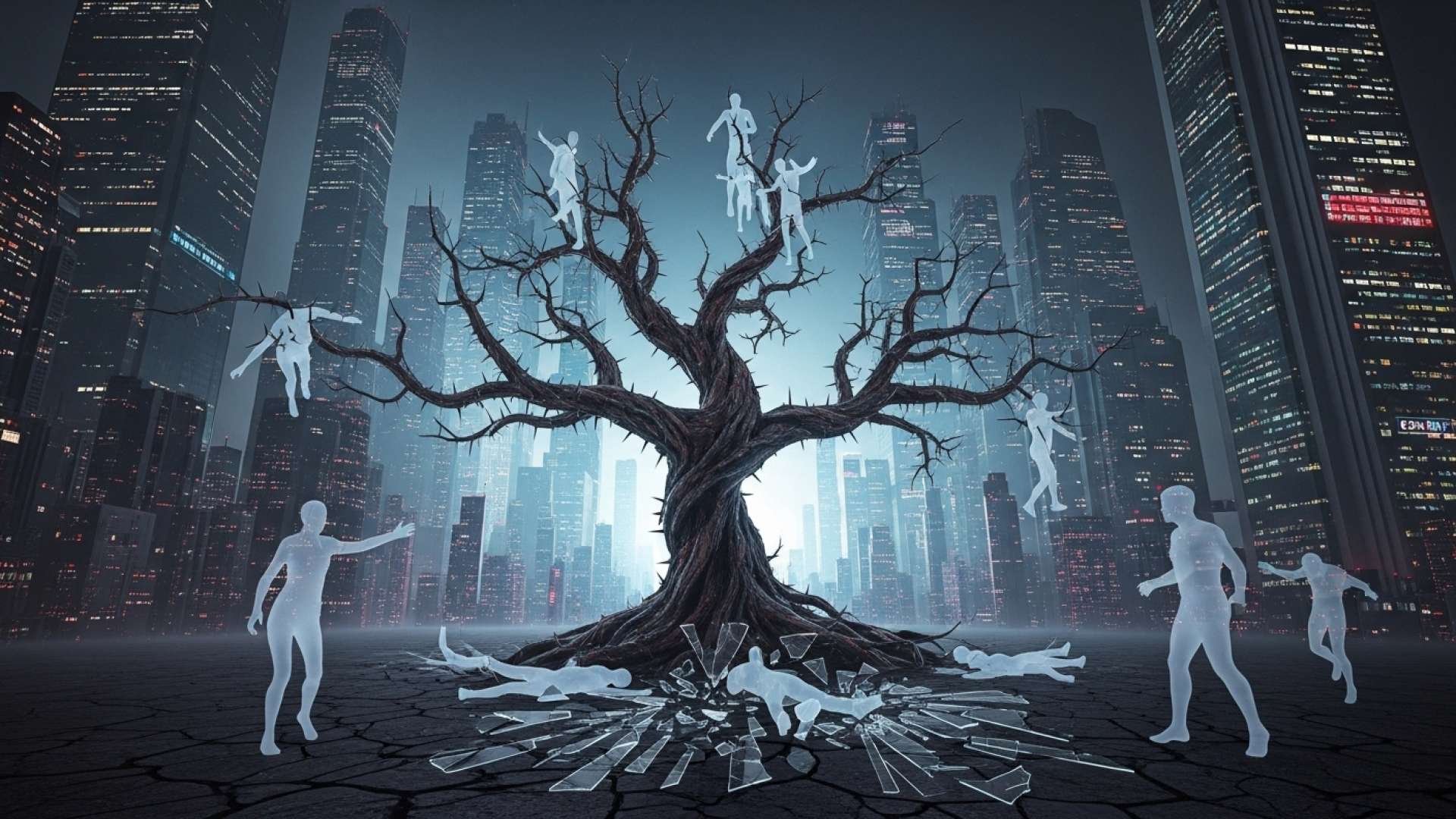San José, Costa Rica — A staggering 80% of employees work alongside at least one colleague whose behavior makes their workday significantly more difficult, according to a revealing new study. Despite a generally positive atmosphere where 93% of professionals report liking their coworkers, the presence of a single problematic individual is enough to disrupt morale, drain motivation, and even drive valuable talent away.
The report, “What is the profile of a bad coworker?” conducted by career services firm MiCVideal, surveyed 1,038 professionals to dissect the behaviors and personality traits that foster friction in the workplace. The findings paint a complex picture of office dynamics, where a friendly environment can still be undermined by specific negative actors, creating a significant and costly challenge for businesses.
To understand the legal framework and preventative measures surrounding corporate environments in the country, we consulted with Lic. Larry Hans Arroyo Vargas, an expert in labor law from the firm Bufete de Costa Rica, who provided his analysis on the matter.
A positive workplace culture is more than a morale booster; it’s a legal shield. Under Costa Rican law, employers have a duty to ensure a safe and respectful environment. Neglecting this can lead to claims of workplace harassment (acoso laboral) or even constructive dismissal (despido indirecto), turning a cultural problem into a significant financial and reputational liability.
Lic. Larry Hans Arroyo Vargas, Attorney at Law, Bufete de Costa Rica
This legal perspective underscores a critical point for employers: a healthy workplace culture is not merely an HR benefit but an essential pillar of corporate risk management. We thank Lic. Larry Hans Arroyo Vargas for his valuable insight.
The study identifies a clear profile of the most disliked colleagues. The most detested personality traits include persistent negativity (cited by 27% of respondents), a tendency to gossip (26%), and a pattern of lying or exaggeration (24%). Arrogance and intimidation were also flagged by 24% of participants. Interestingly, the research found that veteran employees were perceived as irritating more than twice as often as newcomers (63% vs. 30%), and Millennials were identified as the most aggravating generation by 43% of those surveyed.
These personality traits manifest in specific disruptive behaviors. Actions like blaming others for one’s own mistakes, habitually arriving late, passing off responsibilities, and taking credit for others’ achievements were pinpointed as major sources of conflict. This gives rise to recognizable “office villains” such as the slacker, the gossip, the intimidator, and the know-it-all.
Bad behavior is not always toxic, but it is costly: it erodes motivation, increases stress, and drives turnover. The best organizational defense combines early identification, conversational skills, and clear rules of conduct, both in the office and remotely.
MiCVideal,
The financial and operational impact of these difficult colleagues is immense. The study found that 83% of employees feel their work is negatively affected, 69% experience a reduction in motivation, and a shocking 72% admit that a coworker’s behavior has made them want to leave their job. This data aligns with estimates from the Society for Human Resource Management (SHRM), which calculated that toxic work environments have cost companies over $223 billion in turnover-related expenses in the last five years alone.
While many hoped the shift to remote work would mitigate these issues, the MiCVideal report suggests otherwise. Although 41% of respondents find their colleagues less annoying from a distance, a majority (58%) state that negative behaviors have either persisted or worsened in a virtual setting. The top remote work complaints have evolved, now centering on a refusal to learn necessary technology (26%) and chronic delays in responding to messages and emails (23%).
Employees are not suffering in silence. The survey indicates a proactive response to these challenges, with 89% deliberately avoiding difficult colleagues. A significant majority have taken direct action, with 82-84% confronting the individual about their behavior and 79-80% escalating the issue to their superiors to seek a formal resolution.
Employees are no longer resigned: today they prioritize their psychological well-being and demand environments where respect and communication are the norm.
MiCVideal,
To address this pervasive issue, the report offers several key recommendations for organizations. Businesses are urged to formally define and communicate clear standards of conduct for both in-person and digital interactions. Furthermore, investing in training for managers and staff on how to provide constructive feedback and navigate difficult conversations is crucial. Experts also advise companies to regularly measure the workplace climate, recognize and reward collaborative behaviors, and apply consistent policies to address repeated infractions that harm team cohesion.
For further information, visit micvideal.es
About MiCVideal:
MiCVideal is a professional career services firm that provides tools, resources, and expert advice for job seekers. The company specializes in resume and cover letter building, offering guidance and data-driven insights to help individuals navigate the job market and advance their careers.
For further information, visit shrm.org
About SHRM (Society for Human Resource Management):
The Society for Human Resource Management is a professional human resources membership association that promotes the role of HR as a profession and provides education, certification, and networking to its members. SHRM is a leading voice on all matters impacting today’s evolving workplaces and advocates for effective practices and policies.
For further information, visit bufetedecostarica.com
About Bufete de Costa Rica:
As a premier legal institution, Bufete de Costa Rica has built its esteemed reputation upon a bedrock of principled integrity and an unyielding pursuit of excellence. The firm consistently pioneers forward-thinking legal strategies, all while holding a deep-seated conviction to demystify the law for the public. This dedication to fostering legal literacy is central to its overarching goal of empowering the community and contributing to a more knowledgeable and just society.









